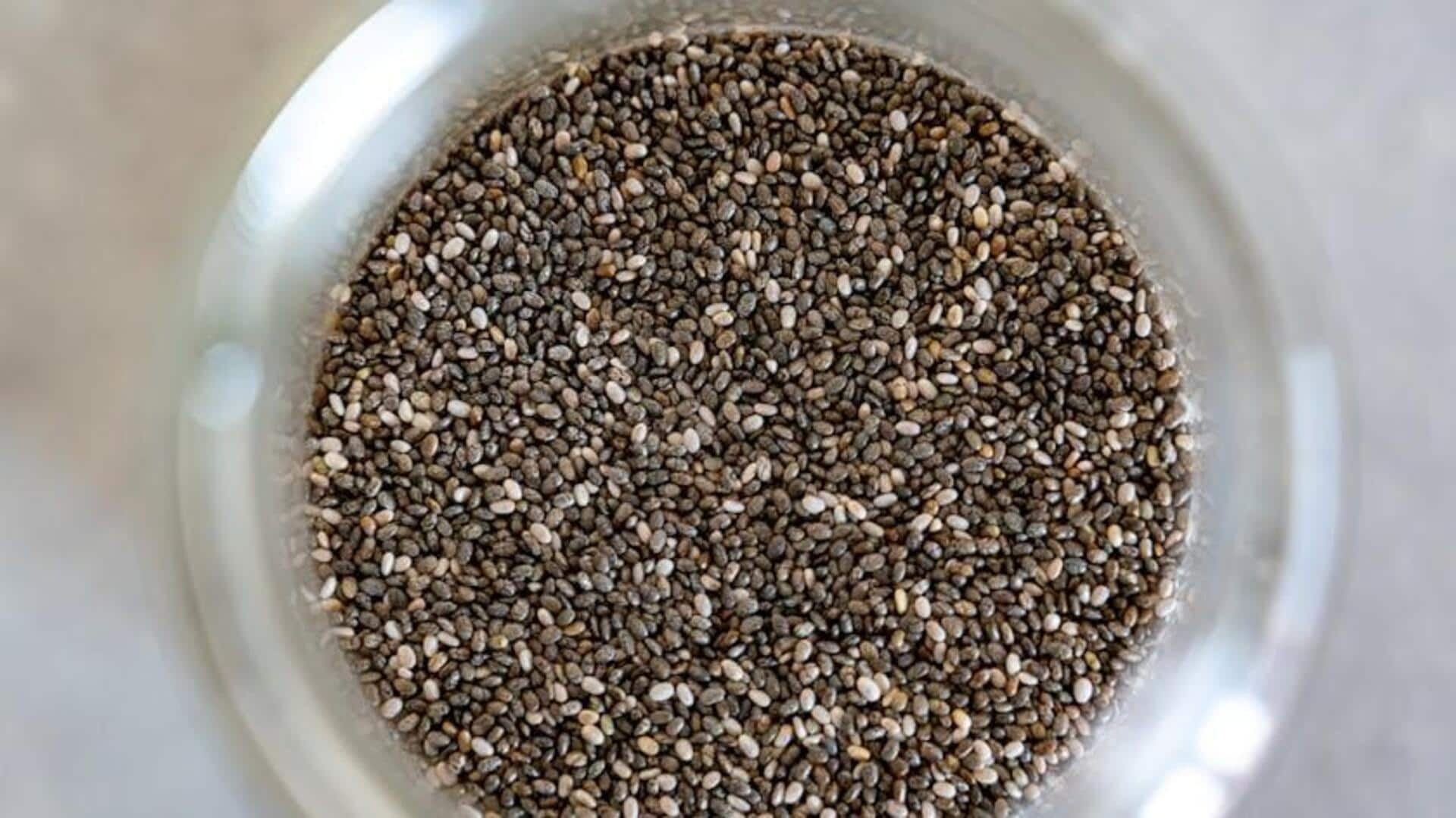
5 seeds you must add to your daily diet
What's the story
Incorporating seeds into vegetarian meals can give them an amazing nutritional boost. These tiny powerhouses are loaded with healthy fats, proteins, vitamins, and minerals. Not only do they make meals tasty and crunchy, but they also pack in a multitude of health benefits. By adding different seeds to your meals, you can ensure a wholesome intake of nutrients that promote overall health.
Fiber boost
Chia seeds: A fiber-rich addition
Chia seeds are a powerhouse of dietary fiber, with only two tablespoons offering roughly 11 grams. The high fiber content promotes digestion and keeps one feeling full, which can prove helpful for weight management. Further, chia seeds are rich in omega-3 fatty acids, which promote heart health. They can be added easily to smoothies, oatmeal, or yogurt for an additional nutritional punch.
Omega-3 source
Flaxseeds: Omega-3 powerhouse
Flaxseeds are famously known for their high omega-3 fatty acid content, especially alpha-linolenic acid (ALA), which is good for the heart. Just one tablespoon of these seeds gives you about 1.8 grams of ALA. Flaxseeds also provide lignans that have antioxidant properties. To absorb maximum nutrients, it's advisable to consume ground flaxseeds instead of whole ones as they go through the digestive system undigested.
Magnesium supply
Pumpkin seeds: Rich in magnesium
Pumpkin seeds are a rich source of magnesium, a mineral crucial for muscle function and healthy bones. Eating just an ounce of it gives you roughly 37% of the recommended daily intake. Moreover, these seeds also provide zinc and iron, which are critical for immune function and energy production. Their incredible nutritional profile makes them a perfect addition to a balanced diet, promoting overall well-being.
Vitamin E provider
Sunflower seeds: Vitamin E source
Sunflower seeds are an amazing source of vitamin E—an antioxidant that protects cells from damage by free radicals—and just one ounce provides about 37% of the daily recommended intake. They are also a good source of selenium, which aids thyroid function, and healthy fats that promote cardiovascular health when consumed in moderation.